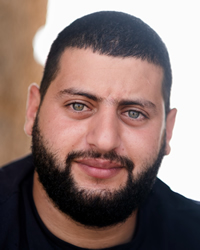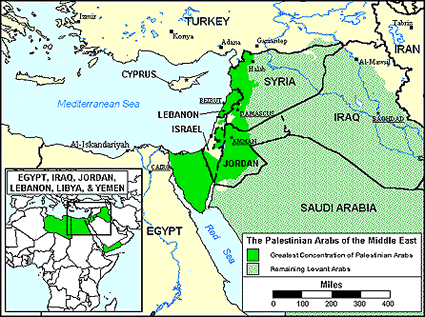Islam came to Egypt soon after the death of Mohammed. The Egyptian population at that time was mainly Jewish, Eastern Orthodox Christians and animists. Over the centuries more and more people converted to Islam and more and more Muslims moved into the area. In the first Arab-Israeli War of 1947-1948, thousands of Palestinian Arabs fled their homes in the area now known are Israel. Atrocities were committed by both sides in the war. Since that time, Arabs who departed Israel have not been allowed to return to their homeland. During the 1967 Arab-Israeli War, thousands more left east Jerusalem, Gaza and the West Bank. Some of the Palestinians who departed Palestine in 1948 and 1967 came to live in Egypt. The Egyptian government has not granted the Palestinians citizenship or welcomed more Palestinians into their country. Egypt already has millions of impoverished people, and the government does not want more. Egypt does not want Palestinians to take jobs that could be filled by Egyptians or take resources the government could use for their own people.
Not being citizens of Egypt, uneducated Palestinians often must operate in the "shadow" economy. That means they must take jobs that Egyptians consider too dangerous or beneath them. Uneducated Palestinians must take any job they can find. These low positions include digging ditches, cleaning streets and sewers and taking care of animals. These lower-level workers are not allowed to bring their families to Egypt and may be in the country illegally. They send most of their earnings home and often live in squalid conditions with a dozen or more living in one apartment. Some Palestinians are involved in smuggling goods out of Egypt into the Gaza Strip. University educated Palestinians who speak English or French can find jobs but at a lower pay that Egyptian citizens. For a large amount of money to the right officials, these Palestinians might be able to bring their families to live with them in Egypt. Egyptian administrators resist giving spots in universities to those who are not citizens.
The large majority of Palestinians in Egypt are Muslims, mostly Sunni. A small group are Orthodox Christians. Many of these Christians have departed the Middle East, preferring to live in areas where Christians are not persecuted. Sunnis believe that by following the Five Pillars of Islam that they will attain heaven when they die. However, Allah, the supreme God of the universe, determines who enters paradise. Sunnis pray five times a day facing Mecca. They fast the month of Ramadan. They attend mosque services on Friday. If a Muslim has the means, he or she will make a pilgrimage to Mecca once in his or her lifetime. Muslims are also prohibited from drinking alcohol, eating pork, gambling, stealing, using deceit, slandering, and making idols.
The two main holidays for Sunni Muslims are Eid al Fitr, the breaking of the monthly fast and Eid al Adha, the celebration of Abraham's willingness to sacrifice his son to Allah.
The Palestinians living in Egypt may not ever have heard a clear presentation of the gospel. Isa or Jesus is much more than the human prophet that He is deemed to be in Islam. The Palestinians working in lower-level jobs in Egypt would benefit by medical teams of Christ followers coming to help them and showing them the love of Christ. Christian teachers can set up schools for Palestinian children. Sometimes Palestinian children are not allowed to attend Egyptian public schools.
Ask the Lord to raise up a Disciple Making Movement among the Palestinians in Egypt in this decade. Pray the Spirit produces a hunger for spiritual things among Palestinians in Egypt. Pray that Palestinians would tune into Christian TV and radio programs.
Pray that Palestinian parents would be able to provide adequately for their children.
Scripture Prayers for the Arab, Palestinian in Egypt.
| Profile Source: Joshua Project |













